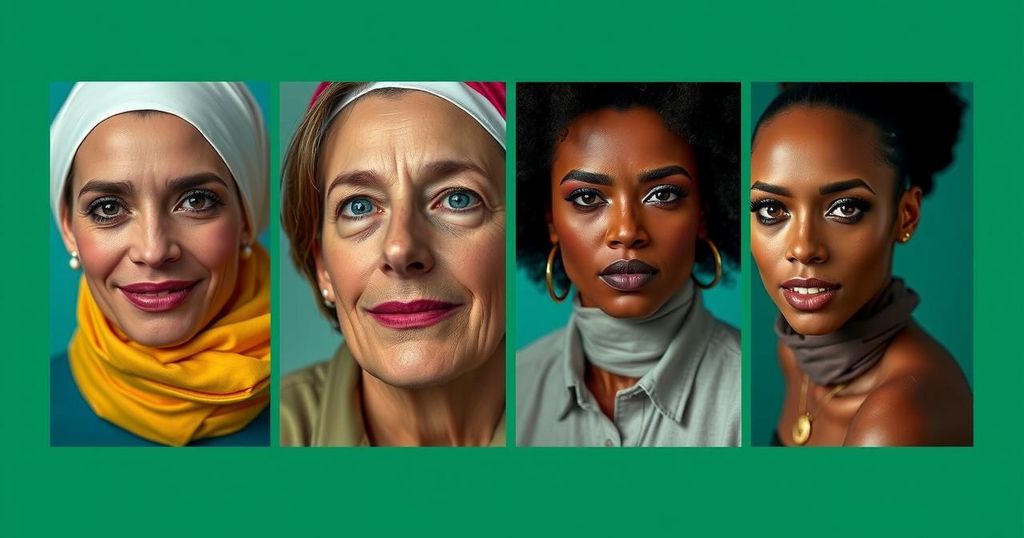Politics
BRAZIL, CDJO, CDJOR, COALITION IN DEFENSE OF JOURNALISM, COMMITTEE TO PROTECT, COMMITTEE TO PROTECT JOURNALISTS, CPJ, CRISTINA ZAHAR, DEMOCRACY, DISCRIMINATION, FOREIGN MINISTRY, GOVERNANCE, ICL NOTICIAS, JAI, JAIR BOLSONARO, JULIANA DAL PIVA, NORTH AMERICA, PEDRO BORGES, POLITICS, REUTERS, SAO PAULO, SOUTH AMERICA, UNITED STATES, VOA, WASHINGTON, ZAHAR
Leila Ramsay
0 Comments
Hostility Towards Women and Minority Journalists During Brazil’s Elections
The article outlines the hostile environment faced by journalists, particularly women and minorities, during Brazil’s municipal elections, as reported by the Coalition in Defense of Journalism (CDJor). The findings reveal that female journalists experienced a significant increase in attacks, highlighting a misogynistic culture exacerbated by recent political developments. Additionally, the report details instances of racial abuse suffered by Black journalists, demonstrating a pervasive climate of discrimination in the media landscape. The article emphasizes the urgent need for protective measures for journalists in Brazil.
During the recent municipal elections in Brazil, a concerning trend of hostility towards journalists, particularly women and minorities, emerged, as captured in a report by the Coalition in Defense of Journalism (CDJor). The monitoring period spanned from August 15, when the elections commenced, until October 27, culminating in a runoff. The analysis indicated a disproportionate number of attacks directed at female journalists, despite their minority representation in the media. This increase in hostility highlights a troubling culture of aggression towards both media professionals and marginalized groups within Brazil.
Cristina Zahar from the Committee to Protect Journalists emphasized that the prevailing misogynistic atmosphere in Brazil exacerbates the situation for women in the public sphere, where attaining power invites aggression rather than support. In the context of these elections, which saw a significant victory for right-leaning candidates, it is imperative to recognize that this environment has evolved under the influence of increasingly polarized political narratives.
Black journalists experienced particularly harsh racism during this electoral cycle. The report documented instances of online racist attacks on Pedro Borges, who faced derogatory remarks following an interview with a right-wing candidate. Zahar pointed out that such attacks often strip these journalists of their professional identity and rights, effectively dehumanizing them in their roles. Female journalists, similarly targeted, encountered derogatory comments related to their appearance, predominantly through social media platforms.
Juliana Dal Piva, an investigative journalist, reflected on her experiences of harassment following her critical investigations into former President Jair Bolsonaro’s administration. She recounted receiving threats and facing a concerted attempt to discredit her professional work through personal attacks. This climate of hostility persists, perpetuated by remnants of Bolsonaro’s administration, characterized by direct assaults on the press.
Although Bolsonaro is no longer in office, analysts assert that his presidency fostered an environment marked by hostility towards journalism. Zahar warns that this has irrevocably altered the dynamics between the government and the press, creating ongoing challenges for journalists striving for free expression in Brazil. The CDJor report advocates for crucial protective measures for journalists and accountability for aggressors, underscoring the importance of maintaining a free press as fundamental to preventing authoritarian governance.
This article discusses the alarming rise of hostilities directed at journalists during Brazil’s municipal elections. It focuses on the disproportionate attacks suffered by women and minorities in media, as highlighted in a report produced by the Coalition in Defense of Journalism (CDJor). The context of these attacks reflects a societal trend of increased aggression towards both media professionals and marginalized groups, particularly in the aftermath of a politically charged climate influenced by previous leadership under Jair Bolsonaro.
In conclusion, the recent municipal elections in Brazil have illuminated a distressing trend of hostility directed towards journalists, especially women and Black individuals, reinforcing the need for urgent protection measures. The CDJor report calls for stronger public policies to safeguard journalists, accountability for aggressors, and enhanced mechanisms to combat online attacks. Without a free press, the potential for authoritarianism looms, making it essential for Brazil to preserve democratic values and expression.
Original Source: www.voanews.com




Post Comment